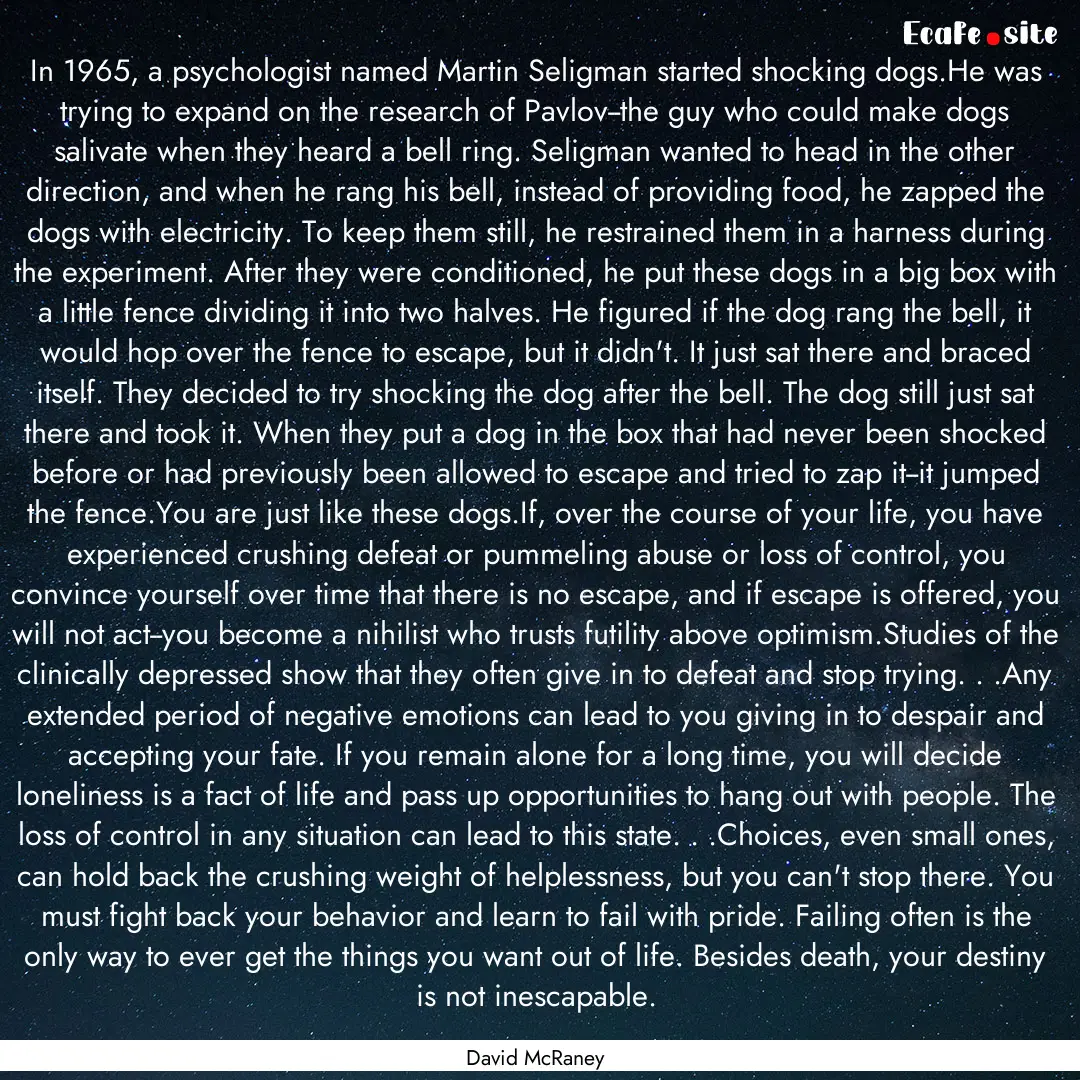
Report, if you have a problem with this page“ In 1965, a psychologist named Martin Seligman started shocking dogs.He was trying to expand on the research of Pavlov--the guy who could make dogs salivate when they heard a bell ring. Seligman wanted to head in the other direction, and when he rang his bell, instead of providing food, he zapped the dogs with electricity. To keep them still, he restrained them in a harness during the experiment. After they were conditioned, he put these dogs in a big box with a little fence dividing it into two halves. He figured if the dog rang the bell, it would hop over the fence to escape, but it didn't. It just sat there and braced itself. They decided to try shocking the dog after the bell. The dog still just sat there and took it. When they put a dog in the box that had never been shocked before or had previously been allowed to escape and tried to zap it--it jumped the fence.You are just like these dogs.If, over the course of your life, you have experienced crushing defeat or pummeling abuse or loss of control, you convince yourself over time that there is no escape, and if escape is offered, you will not act--you become a nihilist who trusts futility above optimism.Studies of the clinically depressed show that they often give in to defeat and stop trying. . .Any extended period of negative emotions can lead to you giving in to despair and accepting your fate. If you remain alone for a long time, you will decide loneliness is a fact of life and pass up opportunities to hang out with people. The loss of control in any situation can lead to this state. . .Choices, even small ones, can hold back the crushing weight of helplessness, but you can't stop there. You must fight back your behavior and learn to fail with pride. Failing often is the only way to ever get the things you want out of life. Besides death, your destiny is not inescapable. ”

David McRaney
From : You Are Not So Smart: Why You Have Too Many Friends on Facebook



